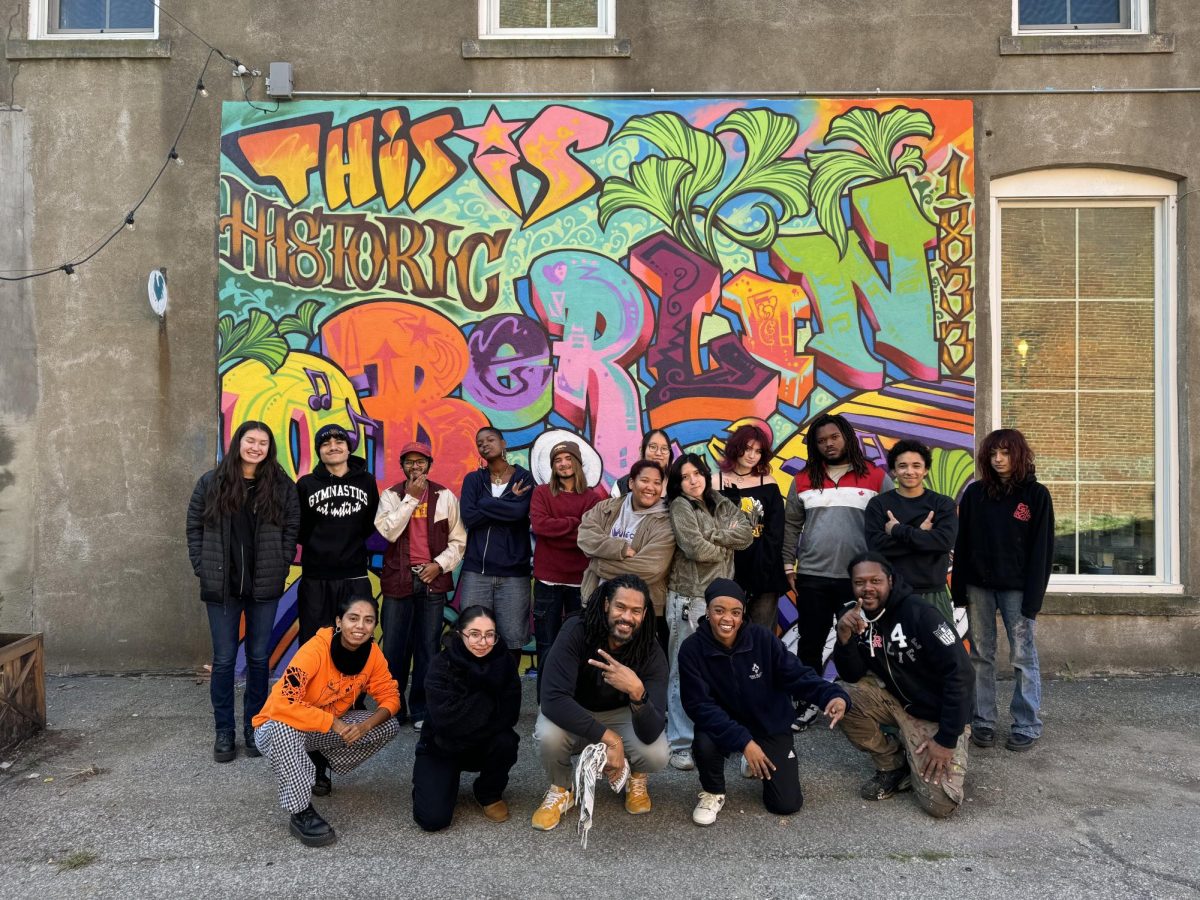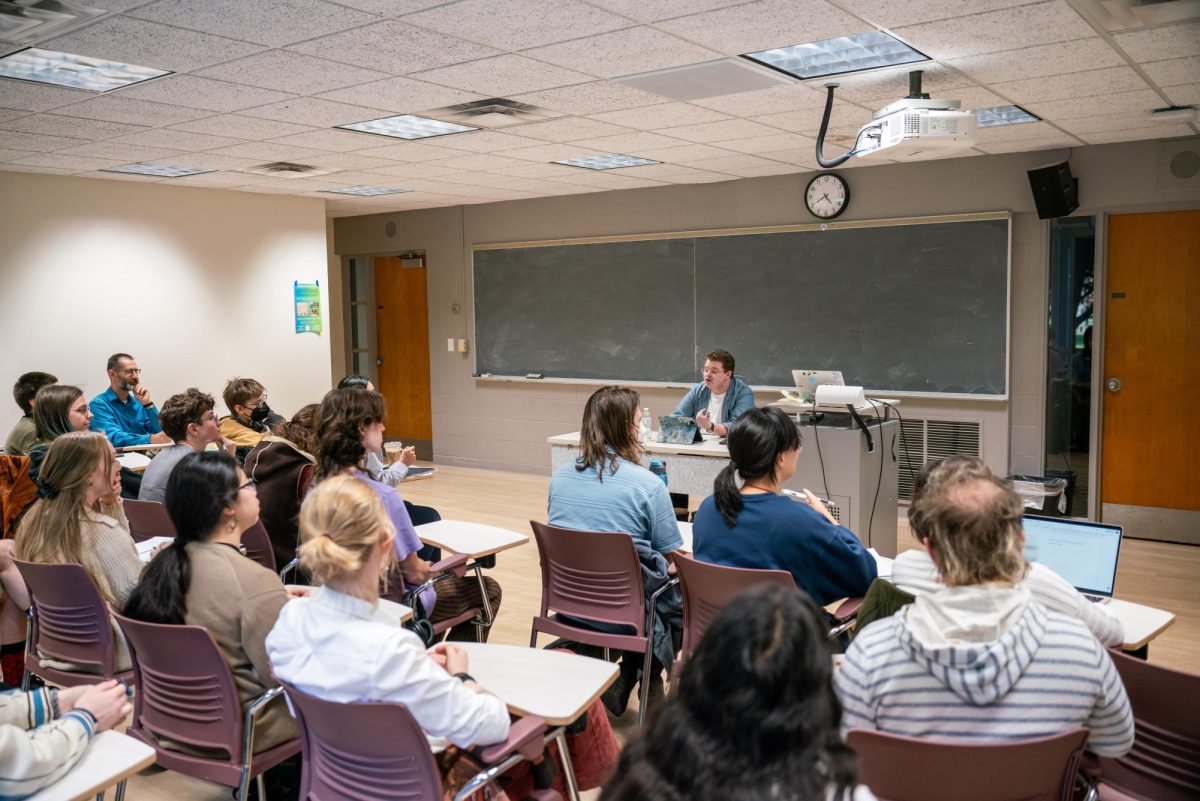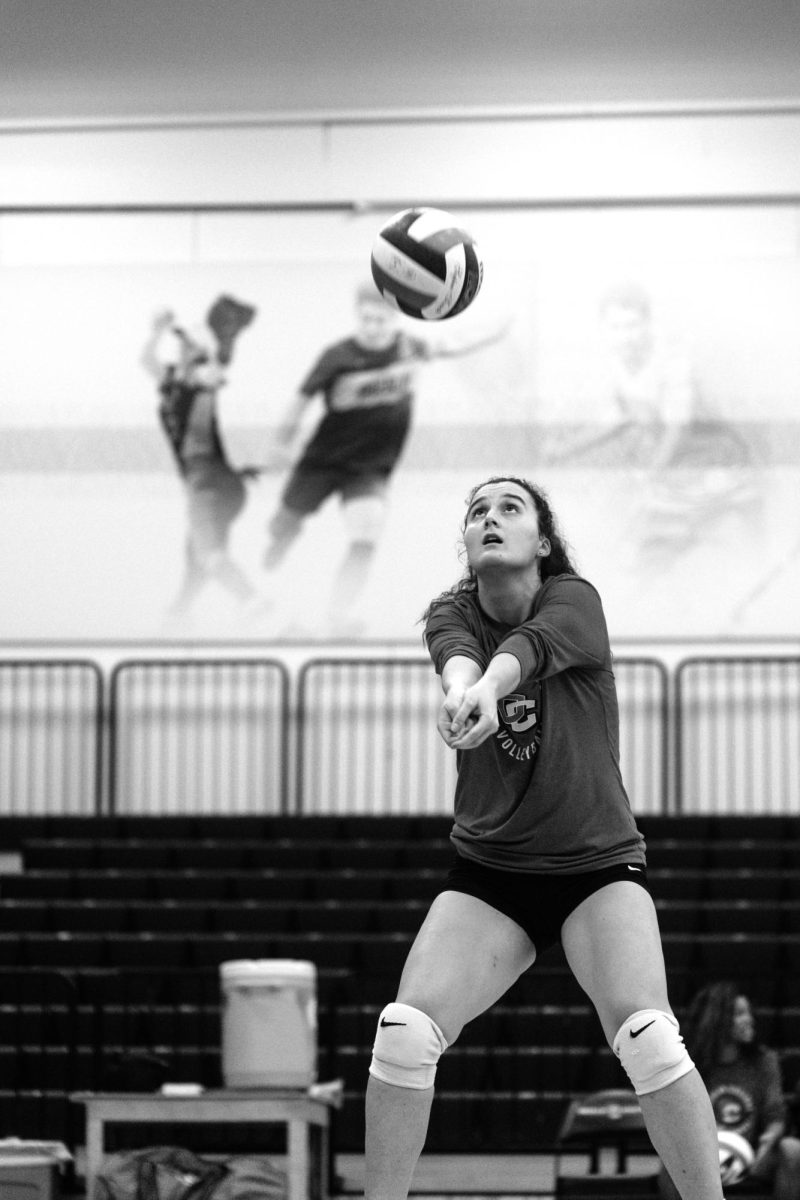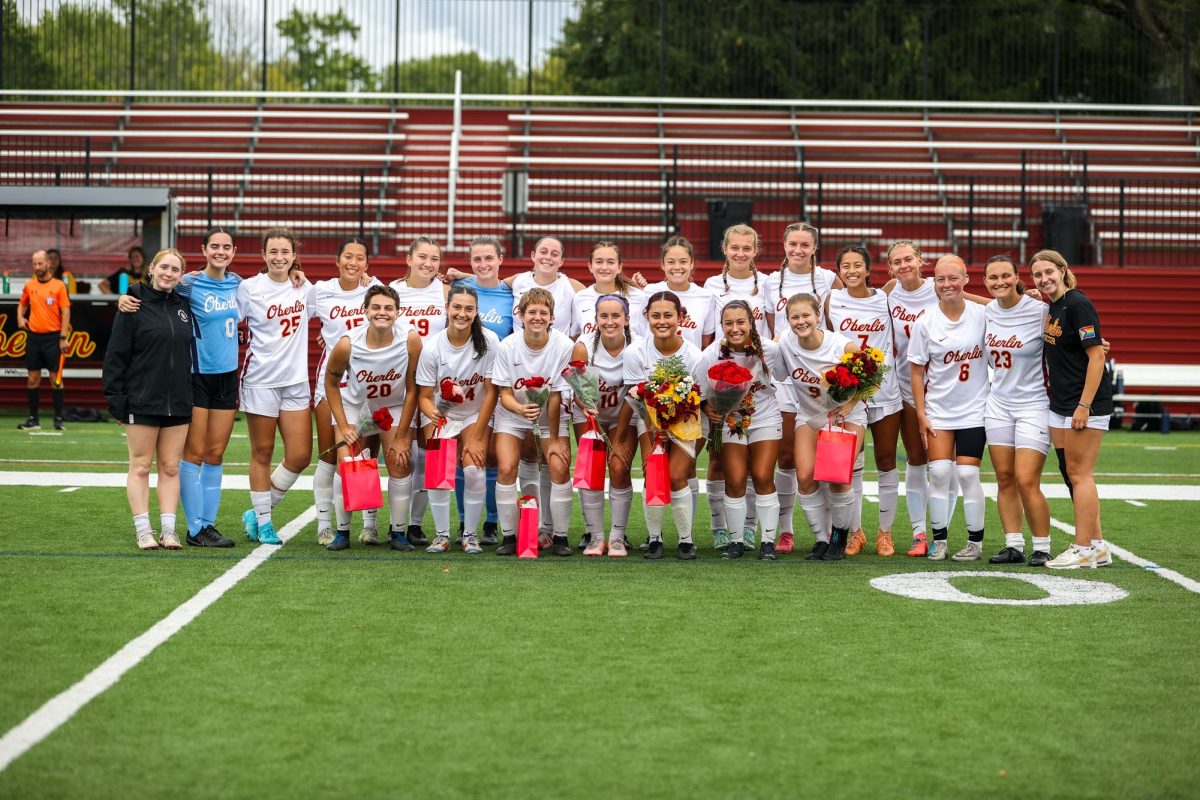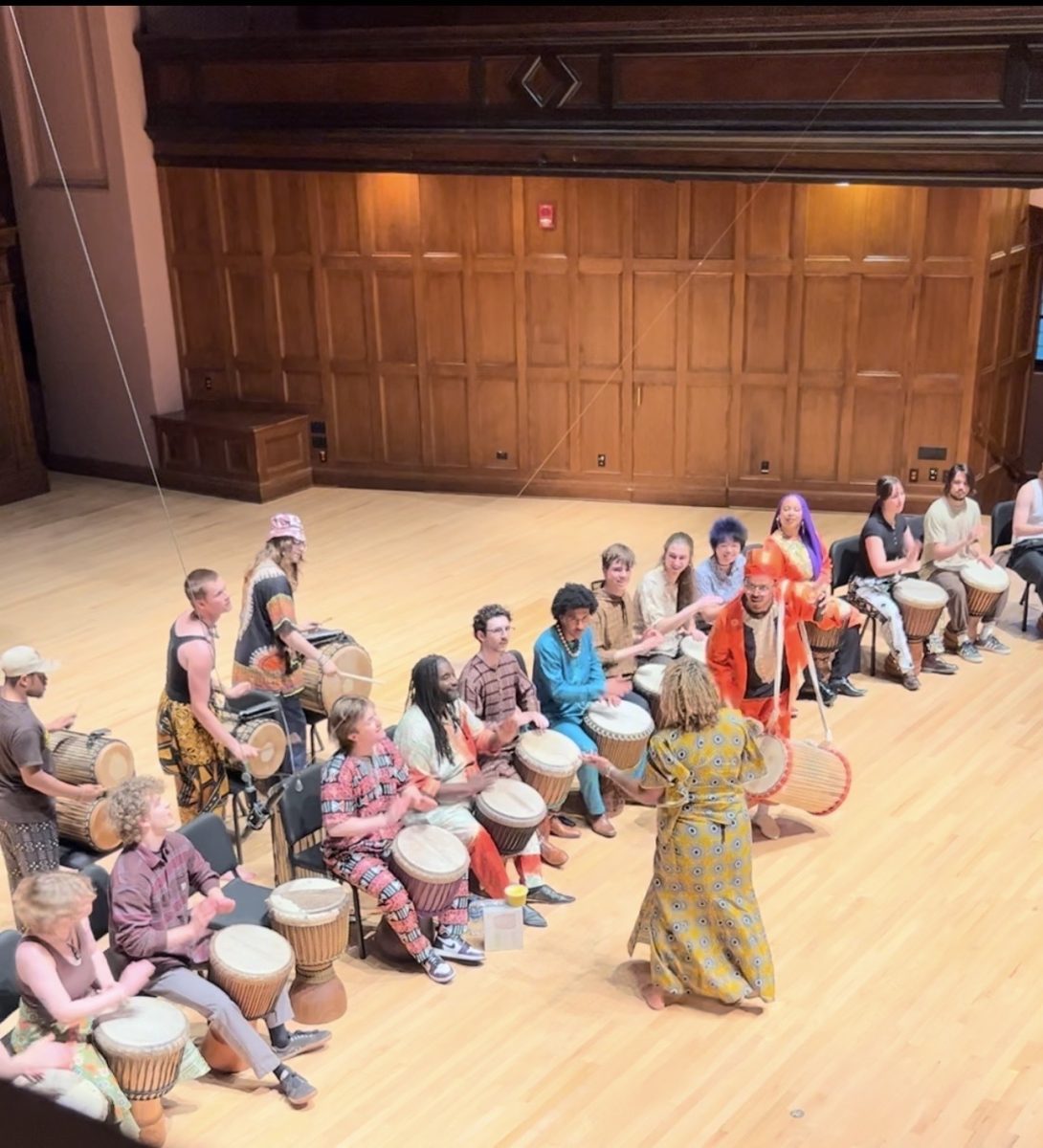Judaism in Jeopardy
September 12, 2012
I have never really thought much about being a Jewish student-athlete. In fact, I’ve never really thought much about being Jewish at Oberlin. I will admit, I am far from religious. I have been to Shabbat services twice in three years, ignored every Hillel email I’ve ever received, and barely celebrated the holidays.
On the other hand, I consider myself a devoted member of the women’s lacrosse team. I’ve never missed a game or practice and have often had to put sports above other extracurricular activities or even studying. As varsity athletes, we know what we’ve signed up for, and we know it’s a huge time commitment.
But no matter how religious we are, we should never have to choose between athletics and our personal beliefs.
No college would consider scheduling a game on Christmas, the most widely celebrated Christian holiday. Fall sports teams, however, have consistently played games on both Rosh Hashanah and Yom Kippur, the Jewish high holidays.
Unlike the Gregorian calendar, the Jewish calendar is dependent on the moon. As a result, the Jewish “day” begins at sundown and ends at the next sundown. This means that holidays like Shabbat begin at dusk, around the time when athletic competitions and practices begin. Although most Jewish holidays are not as commonly observed, the high holidays pose a greater conflict.
Yom Kippur, the Day of Repentance, is the holiest day in the Jewish year. It requires a strict 26-hour fast and several hours of services. Not only do services conflict temporally with athletic events, but playing in these conditions is dangerous — those observing fast are not even allowed to drink water.
Junior Sarah Orbuch, a member of both the women’s soccer and lacrosse teams, has missed games the past three years due to Yom Kippur.
“My freshman year, five of us [on the soccer team] didn’t play. Last year it was the same, and this year we have games on both Rosh Hashanah and Yom Kippur,” she said. This season, Orbuch decided to skip Rosh Hashanah services because she “didn’t feel like she could miss two games.”
“I expected that because about 35% of Oberlin students are Jewish, we would never have an athletic event on Yom Kippur,” Orbuch added.
Junior Gideon Reiz, who plays on the football team, has had the same problem. This is the first year he hasn’t had to skip a game for a religious conflict, and only because Yom Kippur falls on a weekday this year.
“If it were a weekend, I’m sure there would be a game. They don’t think about this stuff, even though a lot of the football team is Jewish,” he said.
Over one-third of Oberlin’s student body identifies as Jewish, making it one of the most Jewish liberal arts colleges in the country. The school has been supportive of this significant minority by canceling classes on Yom Kippur. President Krislov has been especially understanding. When Reiz chose to participate in the high holidays instead of playing in an important football game last season, Krislov sent him a personal e-mail.
“He told me he thought it was honorable that I chose not to play,” Gideon said. “It was great the college supported me, but I didn’t feel that from the Athletics department. They didn’t seem to care at all.”
Although this issue does not affect the entire Oberlin population, it is an issue that should never have existed in the first place. Scheduling around Rosh Hashanah and Yom Kippur should come as naturally as scheduling around Christmas. It is an easy fix, and this is a small criticism of a department that is making huge improvements. Next year Yom Kippur falls on a Saturday, the most popular game day in college athletics. It would be a shame to see the Jewish players sit another game on the bench.









